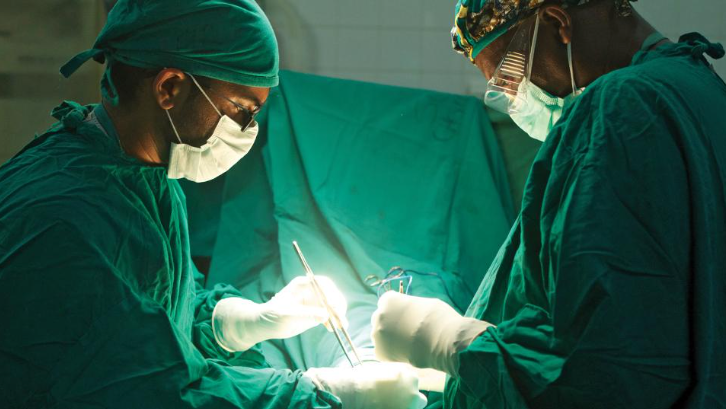Surgeons From India Bring Relief To Underserved Patients In Rwanda

From the October 2016 issue of The Rotarian
Hundreds of people gather in an open-air courtyard at University Central Hospital in Kigali, Rwanda. Men in suits, women in flowered dresses, even prisoners in pink and orange gowns are waiting to find out if they will receive medical care. Some have no visible signs of injury. Others arrived on crutches, with arms in slings, or with catheters protruding from their clothing. Several have swollen, broken limbs: injuries that should have been mended long ago but were neglected because of the country’s long surgical-ward backlog, or simply poverty.
Emmanuel Mugatyawe, 36, sits on the ground as a friend fills out his yellow admissions form. He has been waiting two months for an operation to repair a broken leg – now infected – that he sustained when a car plowed into his motorbike.
“These are not routine cases; there are very few fresh injuries,” says Shashank Karvekar, an orthopedic surgeon and member of the Rotary Club of Solapur, India, after he and his Rwandan colleague Joel Bikoroti examine several dozen patients, scheduling many for surgery. Over the next eight days, a team of 18 specialized doctors (12 of whom are Rotarians) will perform surgeries on 268 Rwandan patients, including procedures in orthopedics and urology. The trip, initiated by District 3080 (India) and hosted by District 9150 (Central Africa), is funded by The Rotary Foundation with support from the Rwandan government. It’s the fourth medical mission to Rwanda that the two districts have organized since 2012. This time, among the volunteers is K.R. Ravindran, the first sitting RI president to take part in the mission.